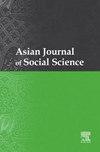译者与福音传道者:从文化资本的视角看明末清初西方传教士在中国的角色
IF 1.2
4区 社会学
Q2 AREA STUDIES
引用次数: 0
摘要
基督教文化是基督教文明的核心,主要由基督教信徒塑造。这种宗教文化通过语言、西方传教士和翻译文本等多种渠道传入中国。随着时间的推移,它积累了宗教文化资本,最终确立了基督教文化在中国的权威。明末清初,西方传教士在西方文明传入中国和中华文明向西传播,特别是基督教宗教文化在中国的传播中发挥了至关重要的作用。本文以布迪厄的文化资本理论为基础,探讨了明末清初西方传教士对基督教宗教文化的宣讲活动,揭示了西方传教士作为译者的使命。在此基础上,论述了西方传教士作为福音传播者的传教策略是如何受到社会场域、知识和象征资本的影响的。此外,本文还发现翻译与社会之间存在着很强的相关性,两者相互影响。因此,本文认为,西方传教士在华无论是作为翻译家还是福音传道者,都是明末清初宗教领域对宗教权威的追求和对宗教权力的资本竞争的反映。本文章由计算机程序翻译,如有差异,请以英文原文为准。
Translators and gospelers: The roles of western missionaries in China during the late Ming and early Qing Dynasties from the perspective of cultural capital
Christian culture, primarily shaped by adherents of Christianity, forms the core of Christian civilization. This religious culture was introduced to China through various channels, including language, Western missionaries, and translated texts. Over time, it has accumulated religious cultural capital, ultimately establishing the authority of Christian culture within China. During the late Ming and early Qing Dynasties, Western missionaries played a crucial role in the spread of Western civilization into China and Chinese civilization to the West, especially in spreading Christian religious culture in China. Based on the theory of cultural capital by Bourdieu, this paper discusses the preaching activities of Christian religious culture of Western missionaries during the late Ming and early Qing Dynasties, revealing the mission of Western missionaries as translators. On this basis, the article shows that how preaching strategies of Western missionaries as gospelers, were influenced by social field, clerisy, and symbolic capital. Furthermore, it finds that there is a strong correlation between translation and society, with both mutually influencing each other. Therefore, this article argues that Western missionaries in China, whether as translators or gospelers, is a reflection of the pursuit of religious authority and the capital competition for religious power in the religious field during the late Ming and early Qing Dynasties.
求助全文
通过发布文献求助,成功后即可免费获取论文全文。
去求助
来源期刊

Asian Journal of Social Science
Multiple-
CiteScore
1.20
自引率
0.00%
发文量
53
期刊介绍:
The Asian Journal of Social Science is a principal outlet for scholarly articles on Asian societies published by the Department of Sociology, National University of Singapore. AJSS provides a unique forum for theoretical debates and empirical analyses that move away from narrow disciplinary focus. It is committed to comparative research and articles that speak to cases beyond the traditional concerns of area and single-country studies. AJSS strongly encourages transdisciplinary analysis of contemporary and historical social change in Asia by offering a meeting space for international scholars across the social sciences, including anthropology, cultural studies, economics, geography, history, political science, psychology, and sociology. AJSS also welcomes humanities-oriented articles that speak to pertinent social issues. AJSS publishes internationally peer-reviewed research articles, special thematic issues and shorter symposiums. AJSS also publishes book reviews and review essays, research notes on Asian societies, and short essays of special interest to students of the region.
 求助内容:
求助内容: 应助结果提醒方式:
应助结果提醒方式:


